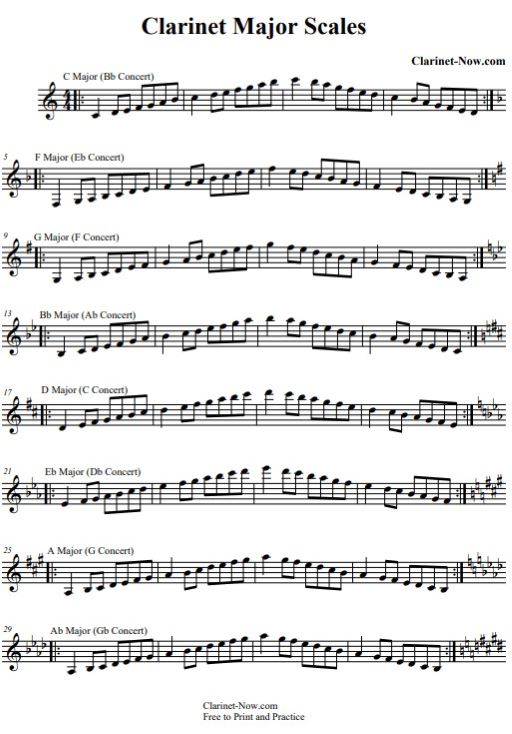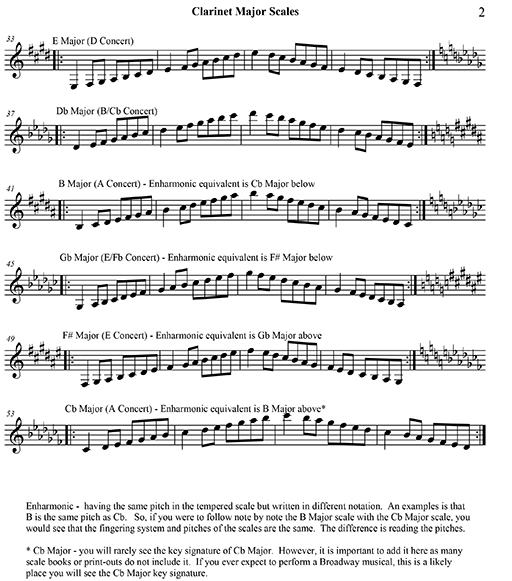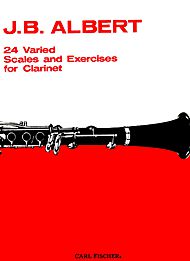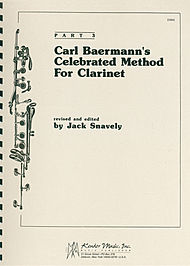CLARINET SCALES
INTRODUCTION TO CLARINET SCALES/SCALE STRATEGY/FREE POINTS/TYPES OF SCALES/LINKS TO SCALES
Click either Major Clarinet Scales graphics below for a printable PDF of the scales.
G Major Clarinet Scale Demo
Embed code for G Major is:This is the first of the series of Major Scale demonstrations which will end up on the Clarinet Major Scales page eventually. Go to that page for your Free Downloadable Clarinet Major Scales PDF.
Clarinet scales are your ticket to accomplishing beautiful music. Of course, the clarinet does not own the scales alone. Scales belong to every instrument and, yes, you can sing scales with your voice. Try this - sing Joy to the World. In singing the first motif of this Christmas hymn, you've just rendered a descending major scale.
Many budding musicians say or think, “I don’t like practicing scales!” Well, one thing is for sure, music is made of scales. All music is made of scales. If you wish to play your favorite movie theme, pop song, an awesome jazz lick or a piece of classical music, you need to know your scales. Otherwise, you’ll spend a lot of time banging your head against the wall to play that music one note at a time.
Learn about the Best Scale Books for Clarinet here.
Music is made of patterns. Often, the patterns are scales that run up or down. Sometimes, they are broken scales, thirds or arpeggios… The variations on these patterns are infinite. These series of scales or broken patterns create a tonality and usually a very specific system of notes.
The systems known as major and minor scales set the key signature. Knowing key signatures in music is extremely important for sight-reading well. The better you know scales, the better you know how to play music. The key signature basically spells out what accidentals (sharps or flats) are common to that piece of music or segment of music.
The key signature is found at the top left corner of any music and usually is printed on the left side of every music staff on a page of paper. Let’s say it is the Key of Bb (B-flat) major: Bb and Eb are in that key. Every time to play a line or space that the B and E occur in this piece, you play Bb and Eb unless cancelled out by a natural sign or sharp sign.
Read more about the Best Beginning Clarinet Books here
CLARINET SCALES STRATEGY VERSES MUSICALITY
Honestly, the ultimate goal of learning your clarinet scales is to improve your musicality. Basically, if you know your scales, your musicality will improve by learning prepared etudes and solos faster and sight-reading more accurately allowing for more expression. Knowing your clarinet scales helps you know the clarinet better. But, if that is not good enough for you, perhaps you are a strategist.
THE CLARINET SCALES STRATEGY IS THE KNOWLEDGE OF FREE POINTS
<b>DID YOU KNOW THAT SCALES ARE FREE POINTS?</b> Yes, scales are free points for nearly any audition or chair trial you will take.
What do you mean by FREE POINTS? Well, read the last short paragraph, especially this part, “scales are free points for nearly any audition or chair trial you will take.” So, if scales are on nearly every audition, that means you can practice and learn them right now at this very moment.
YOU CAN PRACTICE SCALES NOW AND GET AHEAD ON THAT PART OF THE AUDITION. Yes, you can get these FREE POINTS right now. You might not predict the prepared study or know what sight-reading selection is on the audition, but RIGHT NOW, you know that scales are on the audition and you can practice them.
Some of you are taking this literally, aren’t you? No, a judge is not going to give you free points today for playing your scales, but basically the scales are there for you to practice ANY TIME. Do not wait until weeks or days before the audition to learn your clarinet scales. Many students put the Cart before the Horse. They want to play clarinet and do well on an audition, but THEY DO NOT KNOW THEIR CLARINET SCALES. They try to figure out how few scales they need to know to “get-by” on the audition so they can go onto prepared studies and sight-reading. THIS IS GREAT FOR YOU TO KNOW BECAUSE THEY ARE YOUR COMPETITION.
Now, on the other side of competition are those folks who do practice consistently, take private clarinet lessons and PRACTICE THEIR SCALES EVERY DAY. They know their scales cold and they know the extra benefits of scales. They will beat you in competition if you do not practice consistently and learn your scales better.
In a nutshell, if you wish to do well on an audition that asks you to play scales, prepared studies or solo and sight-reading, it is how WELL you know your scales that will ultimately improve your prepared studies and sight-reading.
I’ll just say it now, “Missing points on your audition because you didn’t know your scales is just plain SILLY.” You are welcome to substitute your favorite word instead for silly on that last sentence.
Any questions? I’m repeating this again. The better you know your clarinet scales, the better you will do on your prepared selections on the audition and sight-reading test on the audition. Yes, this is the fourth time I’ve worded this point on this page.
TYPES OF CLARINET SCALES
Click the following links for good printable clarinet scales in each category.
Clarinet Major Scales
Minor - Natural, Harmonic and Melodic
Chromatic 2 octave Chromatic 3 octaveMore scales include whole tone scales, blues scales, major scales in modes, but let’s do this first, learn your major scales, chromatic scale and minor scales, now. We’ll cover the other scales later.
THE MAJOR SCALE PLAN
<b>My personal experience on the 'Scale Points Strategy' as a high school student.</b>
In Alabama the All-state audition included the 12 Major scales, 2 minor scales, chromatic scale, 3 prepared studies from the Klose Method and a sight-reading excerpt. My freshman year in high school I knew that I knew 7 major scales (which was the minimum number to pass through to the prepared studies and sight-reading).
I was encouraged by many to take the audition, but I knew I didn’t know the other 5 major scales and didn’t audition. THAT SUMMER, I made it a point to learn one scale a week. However, you might think 5-weeks, that’s not too bad. I actually made it a 12-week plan so I could learn the scales I thought I knew well, even better.
That next year, I made all-state band. In Alabama, you get 2 points per each major scale, 4 points for the minor scales and 4 points for the chromatic scale totaling to 32 points out of 125. See what I did, I cashed in on my FREE CLARINET SCALES POINTS months ahead of the audition and by the time the audition came, I knew the scales well.
Now, the Major Clarinet Scale Plan is simple.
Twelve weeks = Twelve scales.
Take one scale a week. Honestly, the first few scales are fairly easy: C, F, Bb, Eb, G, D and A. You will probably learn each of these really quickly. So, if you do, move onto the next scales: Ab, Db, Gb(F#), E and B(Cb) **{Gb(F#) are enharmonic notes meaning one pitch with two names. This goes the same for B(Cb)}**. You will need to have a little extra time to learn the scales with numerous flats and sharps.
WHEN I SAY LEARN YOUR SCALES, WHAT DO I MEAN? Memorize them. Don’t fool around with this. Just memorize them now and do it accurately enough that you play the scales without hitches or hiccups (don’t start/stop and restart and backtrack and glaze notes, etc…). If you have too many hitches in your scales, slow down the tempo of the scales and learn them correctly from the beginning.






